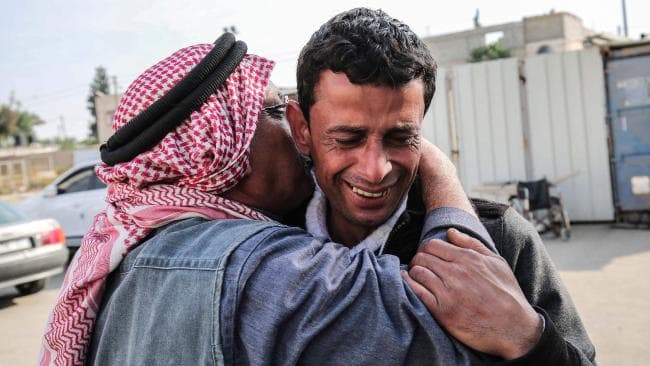WE have photos of him in the Middle East.
An easily identifiable figure despite his youth, he’s often captured by the camera in the easy stance familiar to me. One leg straightened, taking most of his weight, the other slightly forward and bent, he cuts a lean, athletic, handsome figure. In some he’s squinting, for there the sun is always at once burning down and reflecting up from the burnished landscape.
It is the 1930s and my father, John, in his 20s, is in Palestine, a member of the British Palestine Police.
“Nazareth, 1938,” is written on the back of one snap of him. “On guard in the Judaean Hills,” appears on the back of another. “The Police training school, Mount Scopus. It is surrounded by the huts of the Palestinians,” informs yet another.
I learned about his time in Palestine piecemeal as I grew up, from realising he spoke an exotic sounding, foreign language — Arabic. He taught my sister and me how to count to 10, how to say hello, how are you and so forth. My sister recalls more phrases than I do.
Growing up in the damp greyness of London where the family was based when I was small, my head was filled with romantic notions of my dashing, uniformed father in this far-flung desert place with its strikingly different peoples. Pictures of him with rifle slung across his shoulder and small arms strapped to his leg notwithstanding, it all somehow fitted into the fading though then still quite pervasive British narrative of rich empire past, benevolently administered.
But, as I grew older — the family having decamped again to Australia — and began to read modern history the romance died, slain by what I regarded as Britain’s criminal duplicity in its dealing with the Arabs during and after World War I and its stupidity in ignoring or downplaying Zionist aims for a Jewish nation state. For Britain, in pursuit of its national interests alone, promised independence in exchange for Arab assistance against Turkey in World War I, then broke that promise by making a secret deal with the French in 1916 to divide up the Middle East, with Britain’s mandate area to include Palestine, and then published the Balfour Declaration in 1917 announcing sympathy for “Jewish Zionist aspirations” and pledging British “best endeavours” to establish “in Palestine … a national home for the Jewish people”.
Read the article by Margaret Wenham in The Courier-Mail.

